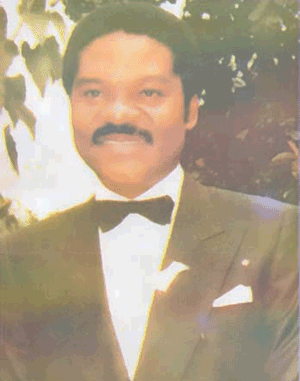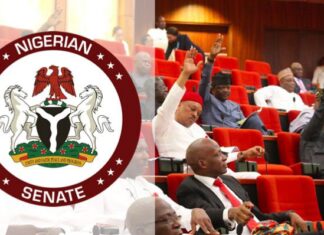Twenty-eight years after Dele Giwa was gruesomely killed via a parcel bomb, activists ponder the many unresolved murders in the land, especially of journalists, writes MARY OGEDENGBE.
On October 19, 1986, exactly 28 years today, the devil visited the residence of Dele Giwa, one of the founders of Newswatch magazine, to deliver a parcel bomb which blew away the life of the 39-year-old journalist.
After Giwa, many journalists have also been killed, and the circumstances surrounding their deaths remain unresolved.
But Giwa’s murder stands out. It was the first and, at press time, the last parcel bomb used against any individual in Nigeria.
His killers are also known, albeit unofficially, according to sources close to him. “I do not think anybody believes that they will ever find officially the killers; but everybody knows who they are,” Ray Ekpu, Giwa’s colleague at Newswatch told TheNiche.
Ekpu, who, together with Giwa, Dan Agbese and Yakubu Mohammed, founded Newswatch magazine, added: “I think it is just a forgotten issue, as it were; but we have him in our hearts and it is not forgotten. It is only the Nigerian government and officials that think that it is forgotten and all gone. But I am sure those who committed the atrocity are not going to sleep in peace.”
Coordinator, Civil Liberty Organisation (CLO), Chijioke Odom, insists that Giwa’s death cannot be swept under the carpet.
“I sincerely do not think that the case has been forgotten. The case is in abeyance, by which I mean, suspension or temporary inaction. The reason being that Nigeria is grappling with myriads of challenges at this point in her history and that became the preoccupation of the Nigerian press and the stakeholders who are in the vanguard of the quest for social justice. So, it has not been forgotten; it might still come up,” he said.
Odom is also hopeful that those who killed Giwa will be brought to justice.
“I sincerely believe that the murderers can be brought to justice if Nigeria gets into political re-awakening in the shortest possible time. But the way we are going, we are still running a primitive society where our value systems are undergirded by materialistic acquisitions.
“To that extent, justice may come, but it may be delayed. I mean justice may come much later after the perpetrators must have gone. Chances are that they will live and outlive this issue. That is what I think,” he said.
Kaduna-based activist, Abdulazeez Ibrahim, said though the killers of Giwa are enjoying at the moment, given their political status, history will forever remember them as villains of the Nigerian state.
“Giwa’s killers are known. But the fact is, they belong to the class of the untouchables. So, they are likely to go unpunished. But history will remember them as those who raped and ruined the Nigerian state,” he said.
Giwa was one of Nigeria’s prolific writers and journalists. For this, his name is forever written in the sands of time. Sadly, he is remembered more for his gruesome assassination in his Ikeja residence in 1986 during Ibrahim Babangida’s military regime than for his brilliant journalistic exploits.
Since the death of Giwa, it could be argued that Nigeria has become a country where politically-motivated murders are unresolved.
The list of such murders is endless. Alfred Rewane, a chieftain of National Democratic Coalition (NADECO); Kudirat Abiola, wife of Moshood Abiola, the acclaimed winner of Nigeria’s presidential election held on June 12, 1993; Bola Ige, former Attorney General and Minister of Justice; Marshal Harry, All Nigeria Peoples Party (ANPP) chieftain; Aminosari Dikibo; a top South South politician; Funsho Williams, Lagos State governorship candidate; Godwin Agbroko, chairman, ThisDay Newspapers Editorial Board; Abayomi Ogundeji, another ThisDay journalist; Bayo Ohu, assistant news editor at The Guardian Newspapers; Bagauda Kalto, a journalist with TheNews magazine, and may other deaths.
Giwa died two years after he joined Newswatch magazine. Like the story goes, a letter bomb was delivered to his home with the inscription, “From the office of the C-in-C (Commander-in-Chief)” and was addressed to “Chief Dele Giwa”.
Suffice to say that he was not a chief; but the package apparently was for him. The package also had an instruction: “To be opened by the addressee only.” And as has been reported, Giwa specifically said: “This must be from the president.”
Countless books have been written relaying different versions of what truly transpired and who the possible killers of Giwa could be.
On November 22, 2013, Major Debo Bashorun – former Chief Press Secretary (CPS) to Babangida – launched a book, Honour for Sale, which claimed to disclose the identities of the killer(s) and truth behind the assassination of Giwa.
In an interview he granted The Punch newspaper, he made the following shocking disclosure: “My book has all the answers to some questions that Nigerians have been asking, with regard to the circumstances leading to Dele Giwa’s death.”
Bashorun also states that as much as he was close to the then Babangida at the time, he did not know much about the death of Giwa and so many things, until much later.
“I asked him (Babangida) if he was responsible for the death of Giwa. I told him that people were already saying the government had ordered the assassination. But he gave me the assurance that he did not kill him. If it was the Babangida that I knew, there was no reason for me to doubt him at that point.
“It wasn’t until after a long while that I found out the truth. When the result of the panel’s investigation was not forthcoming and nobody was arrested in connection with the assassination, the media became impatient and started questioning us. Even, it got to a point where my colleagues in the media started shunning me.
“So I had to go back to Babangida again and I asked him what was going on. When I asked him about the stage of the investigation, he said that I should go straight to Gambo, who was the chairman of the panel, and find out what was going on. But Gambo told me that he had already handed the interim report of his panel to Babangida. At that point, I realised there was something that was not quite straight.
“I took that message, thinking that I would brief him the following morning. The following morning, Babangida just flared up and asked me why I went to Gambo’s house. Then I reminded him that the previous day he gave me the permission to find out from Gambo about the progress of the investigation. After I caught him like that, he relaxed. But that was the problem. From that moment onwards, he became very uneasy and felt that I was digging too much. Then he started maltreating me. But, as a military man, I took it in my stride,” Bashorun said.
While Giwa’s death remained unresolved, the controversial sale of Newswatch magazine to weird business man, Jimoh Ibrahim, will however be decided tomorrow, October 20, at the Federal High Court, Ikoyi.
Even as Ekpu and his colleagues battled to reclaim Newswatch from Ibrahim, the journalism profession still remains threatened in Nigeria.
But Ekpu has some words of advice for the practitioners.
“It is a sad incident that some of them (journalists) are killed accidentally like the way Dimgba Igwe was killed. Some of them are killed by people who think that they have been hurt by the journalist or their organisation, and some of them have died only through accidents and so on.
“So it is a mixed bag and I think journalists like everybody else must keep their eyes open and know that there is a lot of violence and insecurity in this society. We must do whatever we can to protect ourselves, whether on the job or off duty. I think also that the journalists must take up the issue of insurance with their organisations.
“Insurance will not give back somebody’s life, but at least it can guarantee that if in the event that the person dies, his family will be at least reasonably taken care of through the insurance company that they subscribed to. So I think, that will be my suggestion, apart from the fact that the government must beef up security in the country generally and make sure that all of us feel safe; that we go about doing our duties,” he said.












